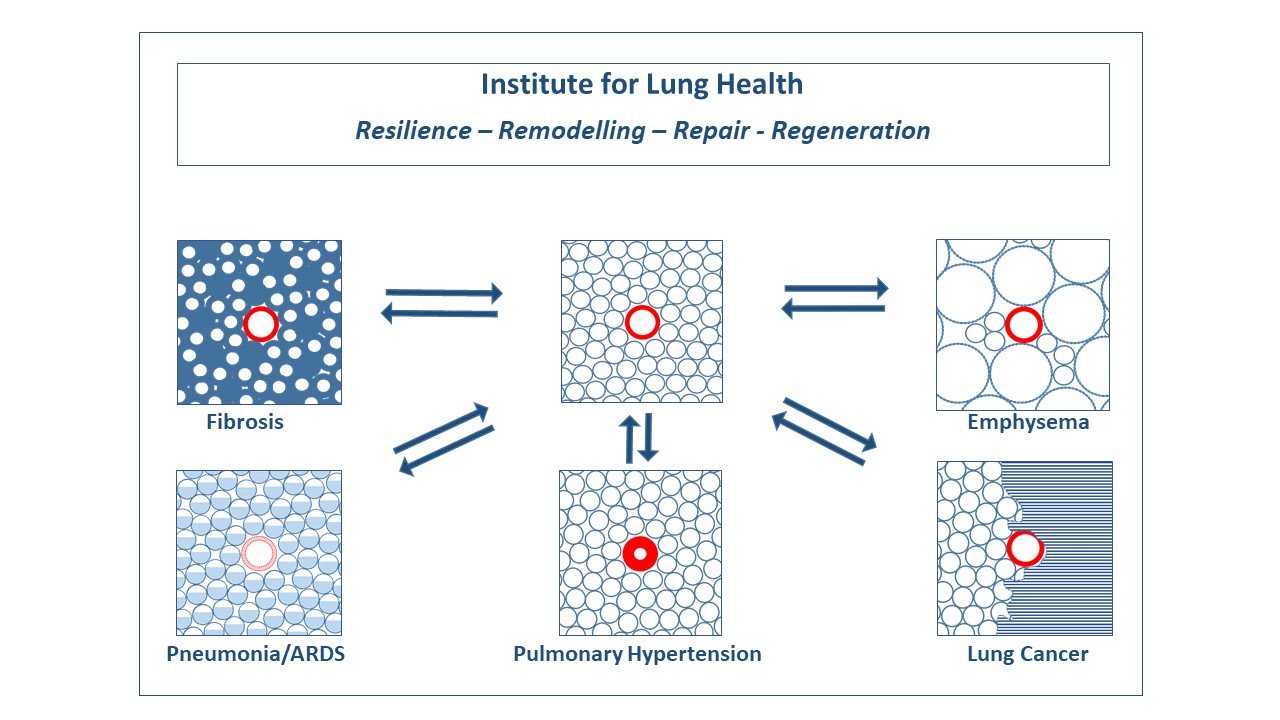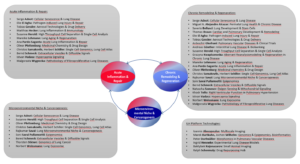Research at the ILH focuses on the parenchymal/vascular lung compartment with a strong translational mission. This includes the topics of Resilience, Remodeling, Repair and Regeneration (R4), with the following goals:

To identify the key cellular players/molecular pathways and the underlying genetic/epigenetic control mechanisms ensuring the development and maintenance of physiological lung architecture and its resilience to environmental challenge under healthy conditions.
To identify the changes in epigenetic control, signaling mechanisms and cellular profiles driving the loss of proper lung parenchymal architecture and function in acute and chronic pulmonary diseases.
To identify cellular and molecular mechanisms that underlie “natural” repair and regeneration mechanisms in diseased lungs and to harness such knowledge for development of novel etiology-based customized preventive and therapeutic approaches. To this end, a broad armamentarium of preclinical approaches will be employed (cell culture, animal models, human organoid models, in-silico modeling; use of compound libraries, drug discovery platforms), and it is the goal of the institute to transfer novel treatment concepts for lung parenchymal diseases into the clinical arena (analysis of extensive biobank material and cohorts, biomarker studies, phase I and II clinical trials employing existent clinical study networks; alliances with industrial partners for phase III trials).
The ILH merges basic science, technological, disease modeling, drug developmental and clinical competences in a translational mission to improve prevention and therapy of parenchymal/vascular lung diseases. To this end, three closely interconnected and interacting Research Areas have been defined, namely
Currently, all of these research areas are addressed by six professorships, three Independent Junior Research Groups, six Platforms and an Adjunct Research Faculty of twenty-two member scientists. Please refer to the individual subpages for more information.
